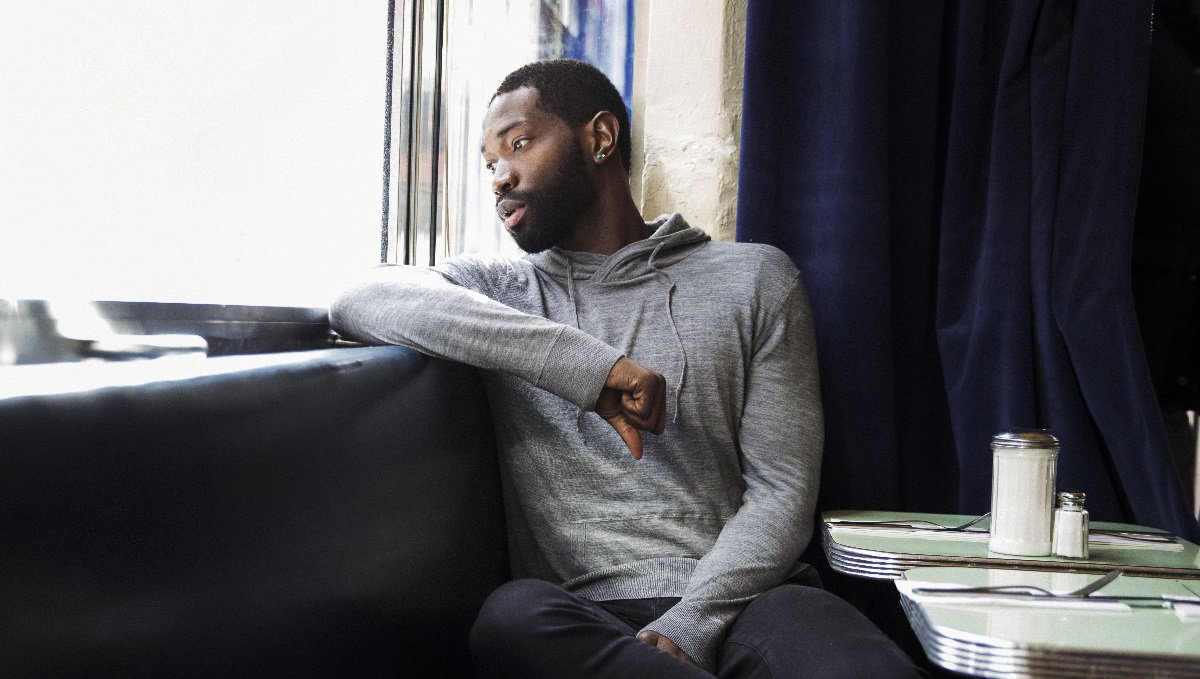‘Moonlight’: Meet the man behind the Oscar-winning coming-of-age story

This interview first appeared in Attitude issue 279, February 2017
.
In 2003, Tarell Alvin McCraney wrote the semi-autobiographical play In Moonlight Black Boys Look Blue as he came to terms with his mother’s death from an Aids-related illness.
The piece lay untouched for almost 10 years, until it was discovered by director Barry Jenkins, who adapted it into the stunning three-act screenplay and movie that made history at last night’s Oscars (February 26).
Attitude sat down with McCraney earlier this year, before the film’s momentous ‘Best Picture’ award, to discuss the human cost of homophobia and racism, and why, for him, watching Moonlight back hasn’t proved the healing experience you might expect…
Congratulations on your Golden Globe success. There’s lots of awards buzz. What does that mean to you?
It’s exciting. It means more people will see the film, which is extraordinary. We were trying to do justice to being raised in that community. To see that being celebrated on a larger scale is exciting. More people can see this place that very few have heard of outside of police reports.
What has the reaction in Liberty City been like?
They know it’s happening but they have other concerns. Liberty Square, where the bulk of the movie was shot, is going to be “remodelled” and we don’t know what this will do to that community. Two of the youngest stars of the film are still students in the school system there. It’s great they can see their work being applauded across the world but there’s so much more we should do to rally behind them.
The film is beautiful but painful to watch. Is it healing for you?
No, not watching it. I hate to say that because people hoped that it would be. Watching it means engaging with memories and questions to which I don’t think there are answers. People think I didn’t turn out like Chiron, that I came out OK. But college degrees don’t assuage that kind of suffering or make the chaos go away. What has been healing and therapeutic is that there are countless people online who have written that their existence was similar or even if it wasn’t, that the film still helped them.

There’s often discussion of racism among gay people and homophobia among black people. Do you have thoughts about that?
At this point, given our political and social climate, there’s no need to litmus test what’s worse. Racism is insidious in every walk of life. Race is still emblematically problematic and colludes with other bias. It’s something that at this point in my life I can’t turn away from. People have this idea that the black community is more homophobic than anywhere else. It isn’t true. The black community has gay people in it and there are black people who are homophobic, that is true. It often breaks down to social economic standing. But the fact is when I grew up in Miami, there were gay and transgender people there and even though my parents were not accepting of my queer identity, I was told to respect them.
Related: ‘Moonlight’ review – ‘An essential, heartwrenching exploration of sexuality and masculinity’
We can spend all day doing a more-or-less scale; a little racist, a lot racist, it’s not good, period. It doesn’t matter what community it’s in. The little bit of racist allows people to vote for demagoguery. “He’s a little racist but I want my taxes to be lower so I will still vote for him,” that’s still racist! If your insurance rate means more to you than the fact that somebody is blatantly espousing a racist platform, that’s problematic.
Have you thought about what impact Trump will have on your work and that of other artists?
Sure. I don’t know the president or if he adopts racist views in his home. I do know the people who support him are very racist, misogynistic and have a homophobic agenda. What is terrifying is the carte blanche it has given people on the street to espouse those things and to use aggression in ways they’ve been concealing for a long time. Artists such as me have spoken about them often but we’ve been told we were making these things up or not perceiving them correctly. But the veil’s been lifted. I think about those who are made even more vulnerable by these platforms. We must give voice to the voiceless, engage them and protect them.
You’ve said your favourite ‘gay’ or ‘queer’ film is The Talented Mr Ripley. Why?
It’s a movie about identity. What’s your performance and how will it be? I saw it at a young age and had an understanding that no matter what you choose, you still have to go home to your own monsters. He [Ripley] was never going to be able to stop performing or to be his most intimate self. There are people who can attest to that, whether it’s performing as masculine or feminine or whatever, and then finding themselves not able to stop doing that. It’s about the chaos and what it costs.
Moonlight is in cinemas now.
More stories:
Paul O’Grady recalls the horror of the AIDS crisis in brand new Attitude Heroes podcast
Inspiring story of forbidden love discovered in Word War Two letters between two men
